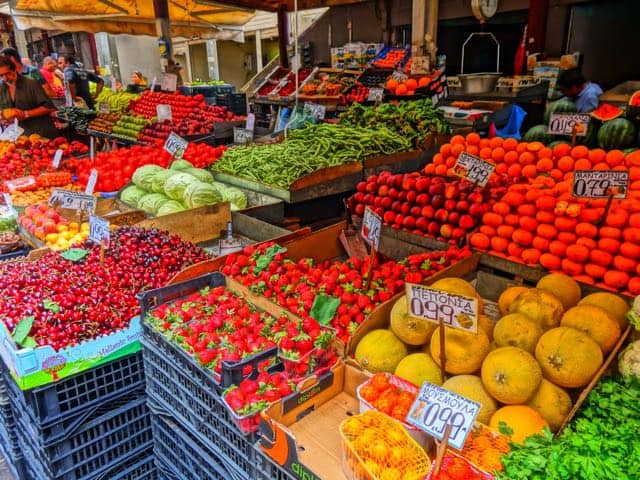Sanctions imposed by the European Union on Russia in 2014 forced Moscow to respond with its own embargo on European products which have brought producers and exporters in Greece to their knees.
In 2014, the European Union imposed sanctions on Russia over its reunification with Crimea.
The attitude of the Europeans forced Russia to respond with an embargo on European products, with the measures being extended every time the EU decides to maintain the sanctions in question.
Hundreds of Greek producers of fresh fruit and vegetables have been experiencing the disastrous effects of a united Europe policy for six years as they are unable to sell their products in a huge market such as Russia, which has traditionally absorbed the largest volume of Greek fresh produce such as the fruits.
In one night hundreds of producers, especially in Northern Greece, found themselves unable to sell their products in Russia and the economic damage that began in 2014, in the midst of the economic crisis that plagued and still plagues the country's economy, see that it continues, even at a time when the crisis is growing due to the COVID-19 pandemic.
Antonis Paschoulas is president of ASEPOP Naoussa, one of the largest cooperatives in the region, with more than 500 members who sell and export fresh fruits and vegetables.
Speaking to Sputnik Hellas, Paschoulas stressed that the impact of the embargo and its continuation for another year is great for those who once sent most of their production to Russia.
"The embargo and its continuation have a great impact on us. We used to send peaches, cherries, kiwis and apples to Russia, ie 70% -80% of the production was exported and it stopped in 2014 when the embargo began," said Paschoulas.
He added that now with the pandemic the economic situation is more difficult and that lifting the embargo and exporting products to Russia would be a big breather.
"If we had exports to Russia, it would be economically better for us. We would have a big market," he emphasized.
Greek fruits are "baptized" as Turkish and Lebanese
Christos Kolios owns a large company based in Arta exporting fruits worldwide, while also a member of the Board of the Association of Exporters of Northern Greece (SEVE).
His company, before 2014, exported fruit to Russia.
As Kolios tells Sputnik Hellas, lifting the embargo, especially in the days of the pandemic, would be "a solution."
He explains that quantities of fruit from Greece are "baptized" as being Turkish in origin or other countries, and travels to Russia as Russian consumer buy very expensive fruit.

"The lifting of the embargo would of course be a solution because there are a lot of products that are changed to be from other countries and go to the Russian market. That is the strawberries and kiwis are "baptized" from Greek to Turkish or (as originating) from Lebanon and pass to Russia," said Kolios.
He added that in other cases the products reach other countries such as Belarus or Lithuania and from there, part of them is shipped to Russia.
Strawberries, peaches, kiwis, citrus fruits, as Kolios said, are the main fruits that were exported from Greece to Russia and in fact in very large percentages of total production.
"To give you an idea, Russia took 40% of Greece's total kiwi fruit production," he explained.
With Greece now exporting only to Europe and some transatlantic markets, it is remarkable what Kolios pointed out, that is, Europe has low consumption of these products and mainly at low prices.
"In Europe, prices are not so good and consumption is low. Transatlantic exports are doing better," he concluded.
"Self-restraint has great financial costs"
The Dean of the School of Economics and Political Science at the Aristotle University of Thessaloniki and professor of the Department of Economics, Grigoris Zarotiadis, said the "self-restraint" imposed by the EU on the export of products is unwise for Europe itself and its producers.
He explained that Europe must be independent and not pursue American interests.
Zarotiadis stressed that he was not surprised by the EU insisting on a policy of sanctions against Russia.
"Whether this is prudent, I think is easy to answer. At a time when the search for markets for industries that have been hit hard by the coronavirus crisis and its impact on active demand, self-limitation is even more costly financially," he said.
"In addition, I think it is unwise because the orientation of Europe and its producers to the international market should be independent of the more or less pursuit of American interests," he continued.
"Europe must at some point realize that it has the ability and the obligation to pursue its own independent economic diplomacy and its general diplomacy in the wider region," Zarotiadis concluded.


